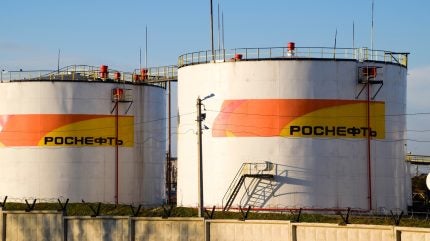
Prominent Russian oil producers Rosneft and Lukoil are set to significantly decrease their oil exports from the Black Sea port of Novorossiisk in July, reported Reuters, citing sources aware of the loading plan.
This move follows the resumption of operations at their respective refineries.
Based on Reuters‘ calculations from market data, the reduction is estimated at around 220,000 barrels per day in July compared with the previous month.
This reduction in oil loadings from Novorossiisk comes amidst Russia’s decision to continue unrestricted gasoline exports in July.
The government extended a waiver for a partial ban on overseas fuel sales, citing sufficient domestic production to meet peak seasonal demand, despite recent Ukrainian drone attacks on refineries.
Specifically, Rosneft’s oil exports from Novorossiisk port are expected to drop to 620,000t in July from 1.06 million tonnes (mt) in June.
Additionally, the company’s Tuapse refinery is due to recommence crude processing this month.
Lukoil, on the other hand, will slash its exports from the Novorossiisk port to 190,000t in July, down from 580,000t in the previous month.
The company has also restarted the CDU-6 crude distillation unit at its NORSI refinery, said to be one of Russia’s largest, after a drone attack in March this year.
Neither Rosneft nor Lukoil responded to requests for comments on the reported export cuts, the news agency said.
The total oil loadings at Novorossiisk for July are projected to be 1.8mt versus 2.9mt in June.
Russia’s overall oil exports and transit from its western ports are likewise expected to fall in July due to increased refinery activity and adherence to OPEC+ output restrictions.
Last week, Russia and Iran signed a memorandum of understanding (MOU) through the National Iranian Gas Company and Gazprom.
This MOU facilitates Iran’s import of Russian gas for resale to Iraq, Türkiye and Pakistan, potentially at higher prices.



